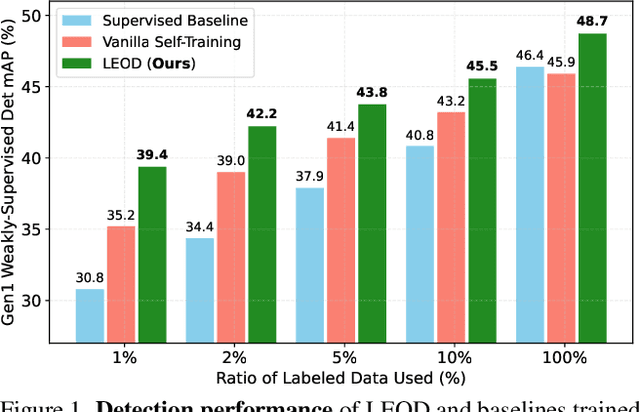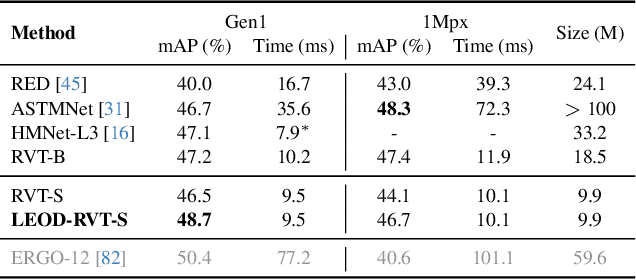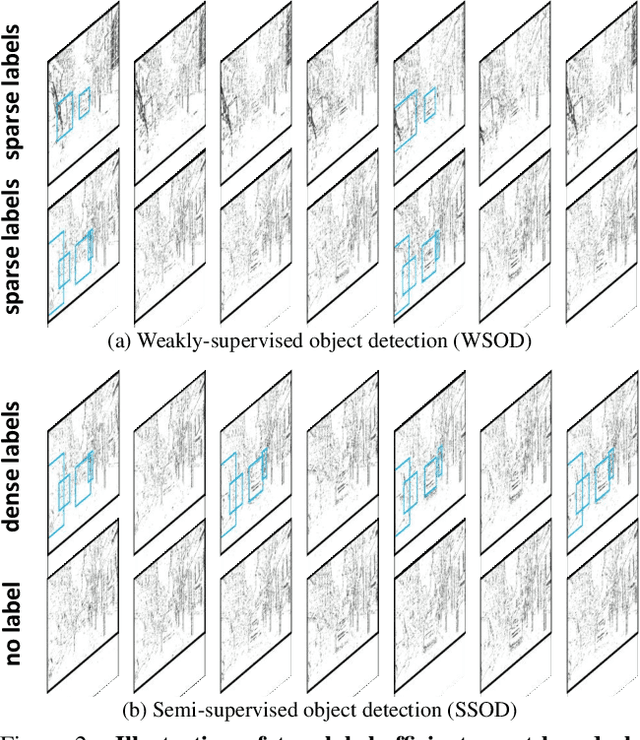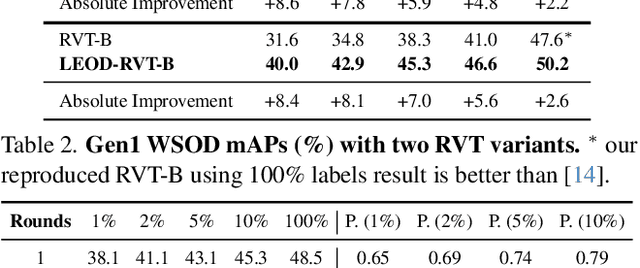LEOD: Label-Efficient Object Detection for Event Cameras
Paper and Code
Nov 29, 2023



Object detection with event cameras enjoys the property of low latency and high dynamic range, making it suitable for safety-critical scenarios such as self-driving. However, labeling event streams with high temporal resolutions for supervised training is costly. We address this issue with LEOD, the first framework for label-efficient event-based detection. Our method unifies weakly- and semi-supervised object detection with a self-training mechanism. We first utilize a detector pre-trained on limited labels to produce pseudo ground truth on unlabeled events, and then re-train the detector with both real and generated labels. Leveraging the temporal consistency of events, we run bi-directional inference and apply tracking-based post-processing to enhance the quality of pseudo labels. To stabilize training, we further design a soft anchor assignment strategy to mitigate the noise in labels. We introduce new experimental protocols to evaluate the task of label-efficient event-based detection on Gen1 and 1Mpx datasets. LEOD consistently outperforms supervised baselines across various labeling ratios. For example, on Gen1, it improves mAP by 8.6% and 7.8% for RVT-S trained with 1% and 2% labels. On 1Mpx, RVT-S with 10% labels even surpasses its fully-supervised counterpart using 100% labels. LEOD maintains its effectiveness even when all labeled data are available, reaching new state-of-the-art results. Finally, we show that our method readily scales to improve larger detectors as well.
 Add to Chrome
Add to Chrome Add to Firefox
Add to Firefox Add to Edge
Add to Edge